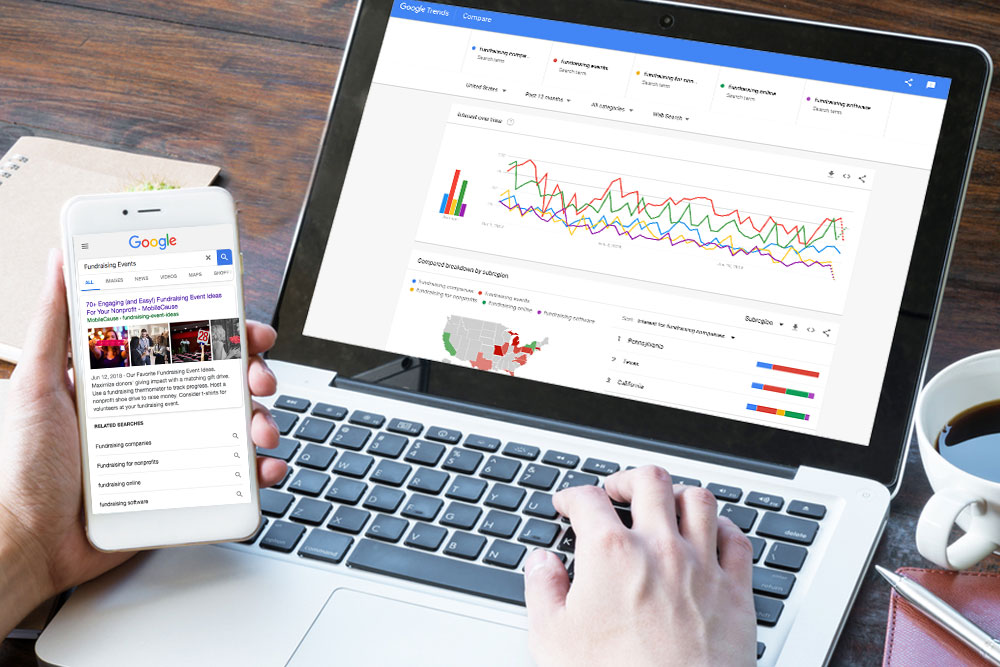SEO AGENCY THAT GROWS REAL WEBSITE TRAFFIC
Real SEO gets your company ranked on the first page of Google and Bing for important search terms and keywords
Giant Partners is an SEO agency that specializes in website diagnostics, evergreen page template creation, and backlink outreach strategy. SPricing based on keywords targeted and scope of project.
SEO AGENCY THAT GROWS REAL WEBSITE TRAFFIC
Real SEO gets your company ranked on the first page of Google and Bing for important search terms and keywords.
Giant Partners is an SEO agency that specializes in website diagnostics, evergreen page template creation, and backlink outreach strategy. SEO agency pricing is based on keywords targeted and scope of project.
Evergreen pages and backlinks are at the heart of search engine optimization. Simply stated, the more authoritative backlinks you have to your website, the higher you will rank for competitive keywords.
DATABASE MARKETING BEST PRACTICES

The #1 way to drive qualified leads to your website is to rank on the first page of Google and Bing for high traffic search terms. Every marketing professional should know the top organic search terms that relate to their business. The best strategies target the high volume search terms that have low competition.
Best Practice: Identify the terms you want to focus on and then estimate a timeline to increase rankings.
Did You Know? Most companies double traffic within six months of implementing an SEO strategy.
What target keywords result in the most search results and website visits?
As an SEO agency we first and foremost identify which target keywords we should be targeting on your website as this is the most crucial step in search engine optimization (SEO) and content marketing.
Here’s the step-by-step guide that we follow to find the best keywords to focus on for your website:
1. Understand Your Audience: Start by understanding your target audience. Who are they? What are their needs, problems, and interests? What are they searching for online. Create detailed buyer personas to represent your ideal customers. This will help you tailor your keyword research to their specific needs.
2. Brainstorm Relevant Topics: Based on your understanding of your audience, brainstorm a list of relevant topics and themes related to your website’s content, products, or services.
3. Use Keyword Research Tools: Keyword research tools are invaluable for finding keywords. Some popular options include Google Keyword Planner, SEMrush, Ahrefs, Moz, and Ubersuggest. Many of these tools provide data on keyword search volume, competition, and related keywords. Start by entering your initial list of topics into these tools to generate keyword suggestions.
4. Analyze Keyword Metrics: Look for keywords with a good balance of search volume and keyword difficulty. High search volume indicates demand, but high keyword difficulty can make it challenging to rank. Consider long-tail keywords (phrases with three or more words) as they tend to be more specific and often have less competition. Pay attention to the competition for each keyword. Tools often provide a competitive analysis or keyword difficulty score.
5. Consider User Intent: Think about the user’s intent when searching for keywords. Are they looking for information, products, services, or solutions? Tailor your keyword selection to match user intent. Use modifier words like “how to,” “best,” “buy,” “guide,” etc., to refine your keyword choices based on user intent.
6. Explore Competitor Keywords: Analyze your competitors’ websites to see which keywords they are targeting. Tools like SEMrush and Ahrefs can provide insight into your competitors’ keyword strategies.
7. Local SEO (if applicable): If your website targets a specific location, consider adding location-specific keywords to your list to improve local search visibility.
8. Organize and Prioritize: Group your keywords into categories and prioritize them based on relevance, search volume, and competition. Create a list of primary keywords (focus keywords) and secondary keywords for each page or piece of content on your website.
9. Create High-Quality Content: Once you’ve identified your target keywords, create high-quality, informative, and engaging content around these keywords. Ensure that the content addresses the user’s intent.
10. Monitor and Adjust: Continuously monitor the performance of your chosen keywords using tools like Google Analytics and Search Console. Adjust your strategy as needed to improve rankings and traffic.
SEO agency work is an ongoing process, and keyword research should be revisited periodically to stay up-to-date with changing search trends and user behavior. It’s also essential to create valuable content that meets the needs of your audience, as search engines increasingly prioritize user satisfaction.

The best way to increase website traffic is to build evergreen pages. These pages are designed to rank for high-traffic keywords. Evergreen content is updated regularly and continuously linked to by external websites.
The Google search algorithm ranks websites primarily based on:
- Domain structure
- External links from high authority websites
- Established content that is trending and relevant
Best Practice: Don’t waste time or money on old SEO techniques like alt tags, keyword saturation, and internal links as they have no SEO effect.
Did You Know? The highest performing evergreen pages have video, image and text content added to them every month. (Our SEO agency can help with this.)
What does it take to build an evergreen web page that dominates search rankings?
A great evergreen web page is one that remains relevant and valuable to its audience over an extended period of time. Unlike timely or trending content that may quickly become obsolete, evergreen content maintains its usefulness and appeal, attracting consistent traffic and engagement.
Here are some key characteristics of a great evergreen web page:
1. High-Quality Content: Evergreen content must be well-researched, informative, and authoritative. It should provide valuable information, solve problems, or offer insights that are not subject to rapid change.
2. Timeless Relevance: The topic of the web page should be one that remains relevant and valuable to the target audience for an extended period, ideally for years. Avoid focusing on topics that are too tied to specific trends or current events.
3. Comprehensive Coverage: Evergreen content should cover a topic in-depth, addressing common questions, concerns, and potential issues related to the subject matter. The more comprehensive the content, the more likely it is to remain valuable over time.
4. Clear Structure and Readability: A well-organized and easy-to-read structure is important. Use headings, bullet points, and other formatting techniques to make the content more scannable and digestible.
5. Optimized for Search Engines: Implement good SEO practices, such as using relevant keywords, meta descriptions, and alt text for images, to ensure your evergreen content is discoverable in search engine results.
6. Regular Updates: While the core content should remain relevant, it’s essential to periodically update your evergreen content to reflect any changes, new information, or emerging trends in the field. This demonstrates that you’re committed to providing the most accurate and current information.
7. Evergreen Topics: Some evergreen topics that tend to perform well include how-to guides, educational resources, product reviews, industry insights, historical overviews, and reference materials.
8. Shareability: Encourage readers to share your content by including social sharing buttons. Quality evergreen content often gains traction through social media and other referral channels.
9. Longevity: Invest in your evergreen content for the long term. While it may take time to gain traction, the consistent traffic and engagement it generates can be a valuable asset for your website over time.
10. Cross-Linking: Within your website, link to your evergreen content from related articles or pages. This not only helps with SEO but also guides visitors to your valuable, evergreen resources.
11. Promotion: Promote your evergreen content through various marketing channels, such as email newsletters, social media, and content syndication. Paid promotion can also be effective in getting the content in front of a wider audience.
12. Analytics and Optimization: Continuously monitor the performance of your evergreen content using analytics tools. Make adjustments and improvements as needed to maintain its relevance and engagement levels.
Remember that the definition of evergreen can vary by industry, and what remains relevant for an extended period in one field may differ in another. It’s essential to understand your audience’s needs and preferences and align your evergreen content strategy accordingly.

The importance of authoritative website author outreach (webmasters, marketers, bloggers, business owners, and influencers) cannot be overstated. Backlinks from authoritative websites can make your search rankings jump overnight.
Every company should build relationships with as many 3rd party authoritative websites as possible that can provide valuable backlinks.
Best Practice: Offer website authors free educational content like infographics, ebooks and webinars that they can give away to their followers. In return they will link back to evergreen pages.
Did You Know? Backlinks from nonprofits (.orgs) are one of the best types of domain authority backlinks you can get.
What is needed for an effective website backlink strategy?
As an SEO agency we build backlink strategies as an important component of search engine optimization (SEO). Backlinks are links from other websites to your website, and they can significantly impact your website’s search engine rankings. While there isn’t a single “best” backlink strategy that applies universally to all websites, there are some fundamental principles and best practices that can guide your approach:
1. High-Quality Content: The foundation of any successful backlink strategy is creating high-quality, valuable content that others want to link to. Content can be in the form of blog posts, articles, infographics, videos, or other media. The better your content, the more likely others are to link to it.
2. Guest Blogging: Writing guest posts for reputable websites in your niche is a common way to earn backlinks. Make sure the content you provide is informative, relevant, and adds value to the host site’s audience.
3. Linkable Assets: Create linkable assets like comprehensive guides, research studies, tools, or unique resources that are valuable to your target audience. These assets are more likely to attract natural backlinks.
4. Social Media and Content Promotion: Promote your content through social media, email marketing, and other channels. The more visibility your content has, the more likely it is to attract links.
5. Outreach and Relationship Building: Reach out to website owners, bloggers, and influencers in your industry. Building relationships can lead to collaboration and potential backlinks.
6. Broken Link Building: Find broken links on other websites that used to point to content similar to yours. Offer your content as a replacement for the broken link.
7. Directory and Resource Links: Submit your website to reputable directories and industry-specific resource lists. Be selective and focus on directories with good authority.
8. Monitor and Disavow Bad Links: Regularly monitor your backlink profile to identify and disavow toxic or spammy backlinks that can harm your SEO efforts.
9. Competitor Analysis: Analyze the backlink profiles of your competitors to identify opportunities for acquiring similar links.
10. Local Directories: For businesses with a local presence, focus on building local citations and getting listed in local business directories.
11. Natural Link Building: Ultimately, the best backlinks are earned naturally. This happens when other websites link to your content because they genuinely find it valuable. Focus on creating content that attracts these organic backlinks.
12. Diversify Anchors Links: When acquiring backlinks, diversify the anchor text (the clickable text of the link) to avoid over-optimization and potential penalties from search engines.
13. Stay Informed and Adapt: SEO is an evolving field. Stay informed about search engine algorithm updates and adapt your strategy accordingly.
Remember that the quality of backlinks is more important than quantity. Low-quality, spammy backlinks can harm your website’s SEO. It’s also essential to adhere to ethical and white-hat SEO agency practices, as attempting to manipulate search engine rankings through black-hat techniques can lead to penalties.
SEO agency strategy should align with your website’s goals and target audience, and it should be an ongoing effort to continually improve your website’s authority and search engine rankings.
GET SEO AGENCY ANALYSIS FOR YOUR BUSINESS
Send us a message below we’ll get back to you in 30 min Monday thru Friday 7am to 5pm PT. Call (800) 547-8080 or live chat below for support.
ABOUT GIANT PARTNERS
20 years. 5000 customers. Giant Partners is America’s #1 data driven marketing agency. We accelerate campaign performance with proprietary marketing databases, strong branding, effective websites, compelling content, social media advertising, email marketing, web search advertising and marketing automation.
